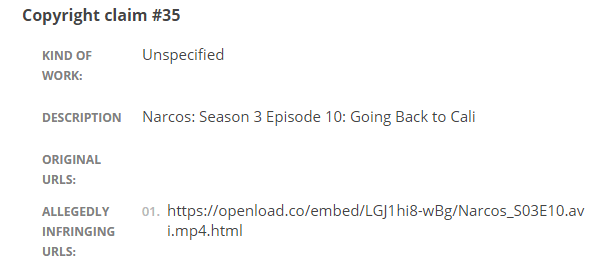Founder of Fan-Made Subtitle Site Convicted for Copyright Infringement
jeudi 14 septembre 2017 à 17:33 Every day millions of people enjoy fan-made subtitles. They help foreigners understand English-speaking entertainment and provide the deaf with a way to comprehend audio.
Every day millions of people enjoy fan-made subtitles. They help foreigners understand English-speaking entertainment and provide the deaf with a way to comprehend audio.
Quite often these subtitles are used in combination with pirated files. This is a thorn in the side to copyright holder groups, who see this as a threat to their business.
In Sweden, Undertexter was one of the leading subtitle resources for roughly a decade. The site allowed users to submit their own translated subtitles for movies and TV shows, which were then made available to the public.
In the summer of 2013, this reign came to an end after the site was pulled offline. Following pressure from Hollywood-based movie companies, police raided the site and seized its servers.
The raid and subsequent criminal investigation came as a surprise to the site’s founder, Eugen Archy, who didn’t think he or the site’s users were offering an illegal service.
“The people who work on the site don’t consider their own interpretation of dialog to be something illegal, especially when we’re handing out these interpretations for free,” he said at the time.
The arrest made it clear that the authorities disagreed. The Undertexter founder was prosecuted for distributing copyright-infringing subtitles, risking a possible prison sentence. While Archy was found guilty this week, luckily for him he remains a free man.
The Attunda District Court sentenced the now 32-year-old operator to probation. In addition, he has to pay 217,000 Swedish Kroner ($27,000), which will be taken from the advertising and donation revenues he collected through the site.
While there were millions of subtitles available on Undertexter, only 74 movies were referenced by the prosecution. These were carefully selected to ensure a strong case it seems, as many of the titles weren’t commercially available in Sweden at the time.
During the trial, the defense had argued that the fan-made subtitles are not infringing since movies are made up of video and sound, with subtitles being an extra. However, the court disagreed with this line of reasoning, the verdict shows.
While the copyright holders may have hoped for a heftier punishment, the ruling confirms that fan-made subtitles can be seen as copyright infringements. Prosecutor Henrik Rasmusson is satisfied with the outcome, IDG reports, but he will leave the option to appeal open for now.
Source: TF, for the latest info on copyright, file-sharing, torrent sites and ANONYMOUS VPN services.

 Despite the widespread availability of legal streaming services, piracy remains rampant around the world.
Despite the widespread availability of legal streaming services, piracy remains rampant around the world.

 Netflix offers a great alternative to piracy, and for dozens of millions of people it’s a favorite pastime.
Netflix offers a great alternative to piracy, and for dozens of millions of people it’s a favorite pastime. 